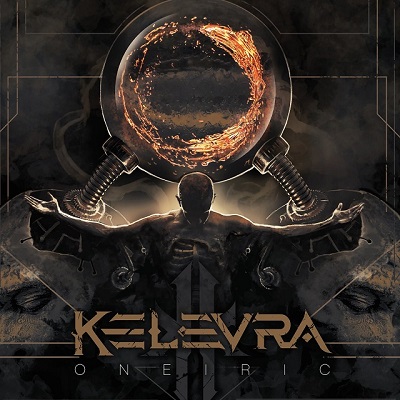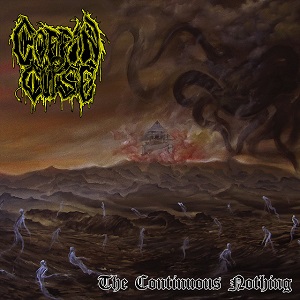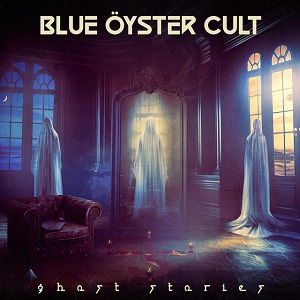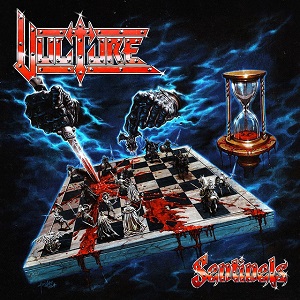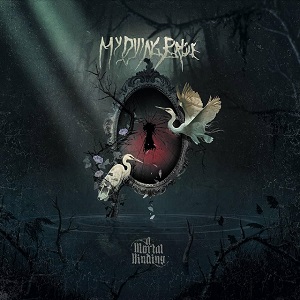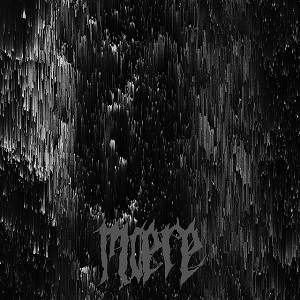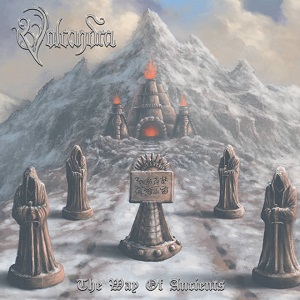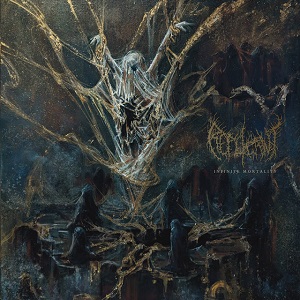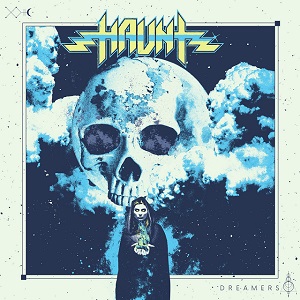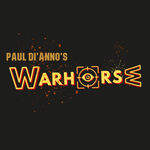BOSTON – Mad Genius Or Just Mad?
December 20, 2013, 10 years ago
By Martin Popoff
This is the subtext of the debate me an’ a bunch of industry folks were having all day today concerning Tom Scholz, whose brand new album, Life, Love & Hope (ten years in the making!) sounds very much like BOSTON’s 17 x platinum-selling debut... except for those damn electronic drums!
Seriously, it’s something I tried meekly to bring up with him 12 years ago interviewing him for the band’s last album, Corporate America, and yet again this time. The answer was long, and more of a “how” than a “why,” and I correctly ascertained I didn’t have time to follow up, ‘cos I really wanted to get in a few Don’t Look Back questions (long story).

Anyway, more on that later. Fact is, despite my disagreement with Tom’s tastes in drums, I’m spinning the new album lots, enjoying the immersion in those time-honoured Boston guitar tones and harmonies—even Brad Delp is here, on some tracks brought forward from Corporate America, before his shocking suicide in 2007.
“It was a completely different mission,” begins Scholz, owner of one strange career path, comparing the new spread to the ill-received Corporate America. “The answer to that would be kind of everything. Now, actually, it was Corporate America that was the aberration in the sequence. I mean typically, from the very beginning, I work alone in the studio on these albums, and, you know, sort of in a vacuum. But that’s what has always worked for me, to create the Boston music that people have respond to. That was my first attempt to try something different, and with that album, there were several other different writers, there were numerous musicians, there were people involved in production. And it was an experiment and it didn’t work (laughs), and I’ve been trying to forget about it ever since. But for this album, I very definitely went back to exactly what I used to do. Which is... you know, it’s very slow, it’s tedious, it’s intense. Working alone, you have to wear a lot of different hats. It’s not like you’re going in to play your guitar part, and a producer and the engineer and the technician and the guitar tech or whatever are taking care of everything. All you have to do is concentrate on playing guitar. It’s more like every issue that comes up, every problem, every decision, everything that doesn’t work for every variation, you’re responsible to figure out the solution, make the decision. So it’s time-consuming, it’s very intense work, but it gives me the freedom to pursue my music in whatever direction it takes me.”And yes, just like 12 years back, my burning question revolved around this idea—an enigmatic irony really and a daft one—that Tom’s got this obsession with sound and analog and perfection and deeply considering everything. And yet... well, just today, I’ve had comments from industry folks I really, really respect, saying “it sounds like a bedroom demo” and “the drums kill it.”
Harsh words, I know, and plus I wouldn’t go that far, because the gentle waterfall of the entire rest of the package—that syrupy Boston seduction—overcomes the harsh and dated ‘80s-ness of the percussion “choices.” Because that’s what they are: choices. Tom has thought hard, way too hard, about where he wants the drums to sit, and this is what he’s decided. Odd!

So, again, when I ask sort of why he likes using this palette, I get an answer that sounds like it’s ‘cos he liked the technical challenge of it, I guess...
“Yeah, on the two songs that were pulled off of Corporate America, those were both sampled. ‘Didn’t Mean To Fall In Love’ and ‘You Gave Up On Love,’ and ‘Someone’ was actually replaced. That actually has an acoustic snare. Those two older songs were... and I had done a lot of that on Corporate America. In fact, the song ‘Corporate America’ itself was my big challenge. I decided to see if I could pull off a drum track with that intricate high hat work, with the sequencer. And basically, I actually did that track, and then I tried it out on a couple… I tried it out on a drummer and a producer. I mean a real producer (laughs), who had hit songs, and I played the track for them, and I asked them what they thought of the drum track. And they asked, ‘Who played it?’ And I said well, it’s a sequencer. And neither one of them thought it was a sequencer. And so based on that, I decided to go ahead, and I did a lot of that album with the sequencer. Not all of it.”But surely even opening track here, ‘Heaven On Earth,’ as gorgeous as it is, it’s heavily smacked upside the head by electronic drums also, no?
“No, that’s... well, it’s half-and-half. What I like to do is I like to mix them. I like to have it… I prefer an acoustic snare, and cymbals are always better live. So I have my... I have a very unusual method for recording cymbals. The main achievement is, without getting too technical on you, I have a method for actually anticipating when the crash is coming. Sounds impossible, but it’s not (laughs). Anticipating when you’re about to hear the crash. And the compressor is triggered about three milliseconds before the crash is hit, or before the microphone that’s picking up the crash—which, by the way, I always use a very wide stereo. This has been true since the very first Boston album. I don’t do that ‘two mics in the middle’ thing. I’ve always done exactly what they tell you not to do. I put the mics as far apart, away from the drum set as far as I can. And when the crash is hit, the compressor is pulled down before the crash hits, and then slowly raises up afterwards. You can hear this. There’s no pumping, because the compressor acts prior to the impact of the stick.”“So that’s what gives me those long decay times on the crashes. As opposed to typical recording with a big splash, and then it’s over. I never like that. I want to hit it and have it go. So what I’ll do is, a lot of times I’ll work out a track, actually playing it, on a—because it’s faster—playing on a keyboard, and then once I know what the arrangement is, then I go back in and I can either dub in the whole track, or I can just put in the cymbals and snare. And it’s occasionally only the sequenced thing on there. There are a couple... and to be honest with you, I’d have to think. I still have the original sequence track, but there are a couple. The only two I know for sure are your two old cuts, and those actually didn’t have my snares. In other words, what I ended up doing after making that recording was, I very carefully sampled a collection of snares with a wide range of hits. It would actually be very hard for me to find out which ones are the sampled ones and which ones were the ones I played once, because you can’t find it. But it is identical.”
Deciding I won’t win this one—and really, I think the winner has already been determined: Boston’s second album went seven times platinum, which was considered a flop, at less than half the stacked pancakes of the debut—I asked Tom whether a particular era from the past resonates within the grooves of Life, Love & Hope.
“It’s not inspired by anything that has come before it,” figures Scholz. “You know, me working the way I like to work, and have kind of always worked except for that record we just spoke about (laughs)... of course I still have and use all the same old equipment. I haven’t changed that much. I still have an appreciation for music and my roots are obviously still the same, which is classical by nature. So it was… I won’t say I was surprised when some people said that there’s a lot of the album that sounds like the older Boston albums, but it wasn’t the plan. It’s just, that’s the way it worked out. You know what? When I go into the studio, I don’t put the first Boston album on and say okay, I gotta write songs and arrange things and get sounds, good sound just like this. I don’t do that.”
As for favourite lyrics on the album... “I think ‘Life, Love And Hope’ is probably the most obvious one, because it’s what the album is about. And of course to me personally, ‘Love Got Away’ is a very personal love story. And ‘The Way You Look Tonight’ is a good ending to that story.”
But wait, the real ending is... ‘O Canada!”
“We were playing the ‘Star-Spangled Banner’ one year on our US tour,” offers Scholz as explanation, “and we had a couple of Canadian dates, and of course we couldn’t open the show with ‘Star-Spangled Banner’ for the Canadian dates. So I thought, well, maybe we can come up with an arrangement of ‘O Canada’, and I actually did, and we actually did perform it live. But all I had was a crude demo, and I finally thought, you know, this is my chance. I’m gonna get this song together. We played it live in 2012, we had this little video, this little Canadian video, and people just loved it. It brought tears to my eyes, and I’m not Canadian. So that was the reason. Just because it was a beautiful song. But this is the Boston-ized version (laughs).”
